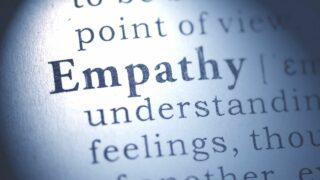Knowing where commas go in our sentences needs a bit of legwork. Just like every other skill that we try to learn. Being able to mix the appropriate transition devices with proper punctuation enriches writing to a whole new level as well. Thanks for dropping by! Let’s now take a little journey towards understanding these …
Grammar
When is a comma necessary before “if?” A comma before “if” is necessary after an introductory remark at the beginning of a sentence. We also need a comma when “if” is used after a mid-sentence transition phrase, such as “for example” or “that is.” We also need to place a comma before “if” when it …
While we translate to bridge cultures, we punctuate to link the thoughts of the reader and the writer. That’s the very reason why punctuation marks and mathematical symbols are on par with each other. But, languages are also too complex to be fully understood, so it is also natural to get confused about how linguistic …
The semicolon is a famously confusing piece of grammar. You know what else is confusing? Algebra. So what do you get when you put semicolons in algebra? Read on to find out!< What does the semicolon mean in math? There are several different uses for the semicolon in mathematics, most of them in obscure …
English punctuation can be confusing. There are so many rules, and plenty of these rules are so nuanced that they really boil down to your own personal judgment. For instance, while the rules for some commas are clear cut, e.g. a comma should separate two independent clauses, other rules require figuring what is and isn’t …
In today’s world, empathy is a very rare quality to find in people. Everybody is concerned only about themselves and their life. We live in a world that glamorizes selfishness and encourages us to only focus on ourselves and become successful. The world lacks empathy and needs more of it. To understand another person’s pain, …
We humans love to label the things we experience in the world. We label them as “new” or “old,” such as when we talk about houses; other times, we describe them as “big” or “small,” such as when we talk about hills. We might refer to smells in the air as “fragrant” or “stinky.” Another …
Throughout history, creating casts and labeling people according to their appearances or choices have been very frequent in many communities. With time, conceptions of things changed as well as our relationships with one another. Also, through centuries, many terms have changed their connotations or weigh especially in progressive societies, where personal freedoms are enforced in …
The students are seated, the exam papers have been given out, and there is pin-drop silence in the room. The race to ace the exam has started. But you are stuck on a question. Even though you revised and prepared for the test, you can’t seem to remember the answer. Just when you are about …









